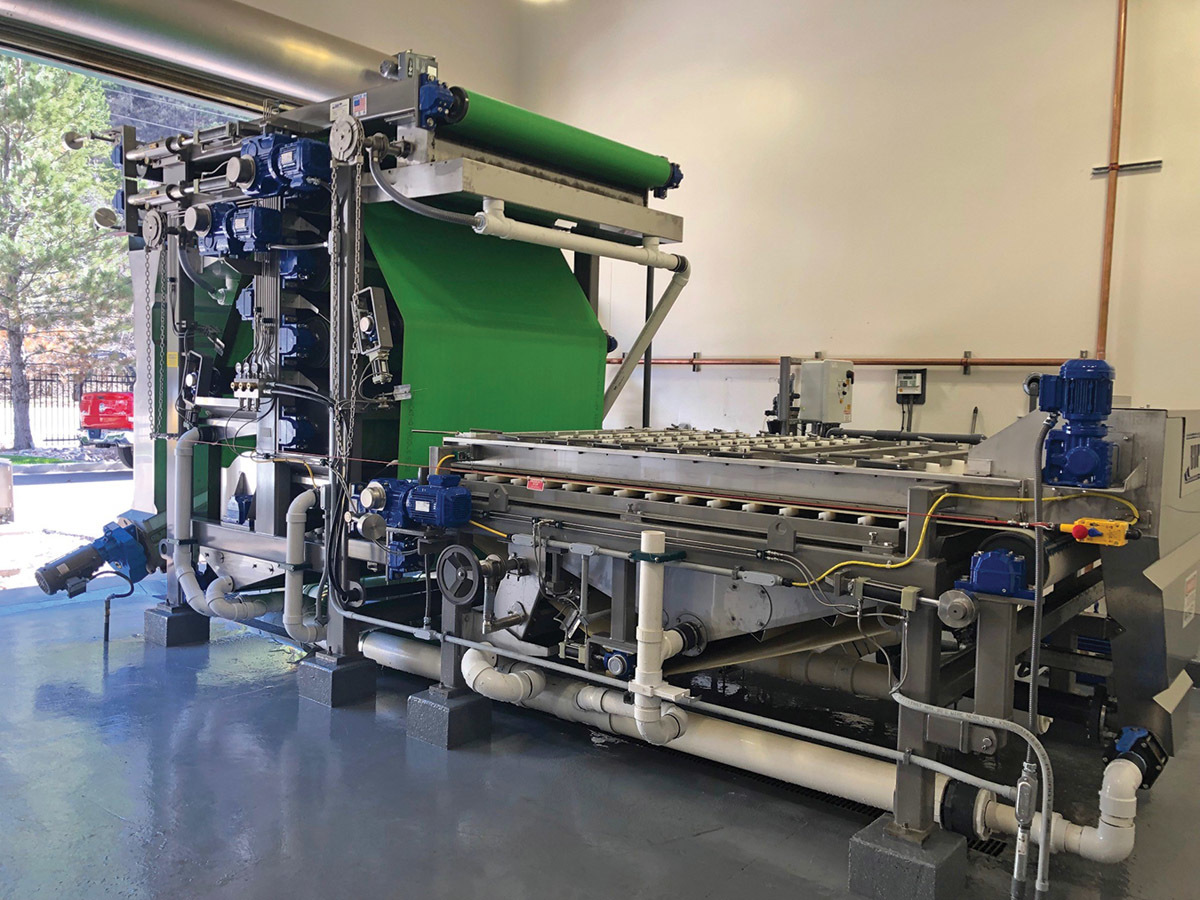An increasing number of water treatment facilities are looking to process residual solids on site and are going through the steps of evaluating dewatering equipment and technologies. Residuals from water treatment plants differ in nature from solids at wastewater treatment plants and often require dewatering technologies with features and design elements that can properly handle the water treatment plant residuals.
Three-belt press
The three-belt filter press offers a good option for these facilities to consider. With its history of dewatering aggregate and minerals, as well as wastewater residuals, the belt press is able to blend the necessary dewatering features to achieve high-discharge cake solids and high solids-loading rates with low polymer dosages and low energy usage.
The use of an independent gravity belt in conjunction with a heavy-duty pressure section has proven to be a great combination for water treatment facilities, allowing them to handle ranges of thin-feed solids or variable solids characteristics due to fluctuations in incoming turbidity.
Utah case study
The City of Ogden (Utah) Water Treatment Plant struggled with solids dewatering, often operating multiple shifts and incurring high costs for polymer. The city replaced its existing dewatering technology with a 1.5-meter 3DP Belt Press.
The unit was installed and started in April 2019. The 3DP processed twice the flow rate, increased discharge cake solids to 30% (from 18-22%), increased solids capture to over 95%, reduced operating time by half, and reduced polymer consumption by over 75%.

BDP Industries is a leading supplier of dewatering, thickening and composting equipment with hundreds of installations throughout the world. The company’s main products include belt filter presses, screw presses, gravity belt thickeners, rotary drum thickeners, and in-vessel composting systems.
518-695-6851 | www.bdpindustries.com





